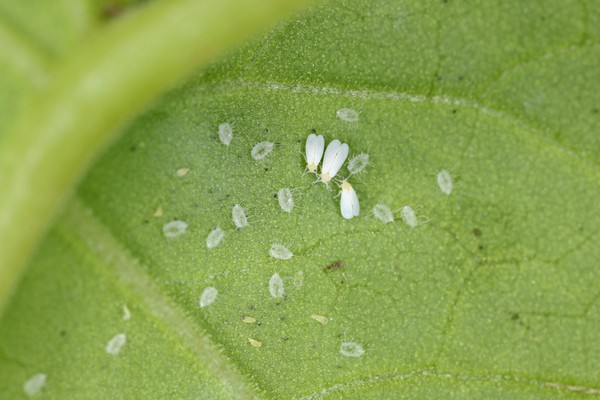Tobacco whitefly (bemisia tabaci) is a harmful pest distributed globally and can have a serious impact on vegetable production. Its resistance to crop protection is one of the difficulties in practice. Therefore, the detection of the resistance gene mutations can provide an important reference for pest management. However, the individual Bemisia tabaci is small, with a body length of less than 1mm. The traditional single-head sequencing operation is difficult, and often a small amount of gDNA is obtained, but it consumes a lot of time and resources, and new detection methods are urgently needed in scientific research.

© Tomasz Klejdysz | Dreamstime.com
The Vegetable Pest Research Laboratory has established a method to detect gene mutation frequencies in micro-insects using amplicon technology and detected the frequency of two pyrethroid resistance-related point mutations of sodium ion channel genes in the Bemisia tabaci population. The method is efficient and reliable and solves the problem of detecting gene mutation frequency of micro-insects.
Amplicon sequencing was originally used to detect the community composition of soil, plant, or animal gut microbes, which can be used to analyze the interaction between microbes and animals and plants. The amplicon sequencing method is based on the Next-generation Sequencing technology, which has high sequencing efficiency and can perform centralized detection of a large number of samples.
The team established an efficient approach for detecting the frequency of mutation by amplicon sequencing. The frequencies of L925I and T929V in VGSC associated with pyrethroid resistance were detected in this study, which could provide foundational data for resistance management of B. tabaci.
This research provides an efficient and reliable method for detecting the frequency of gene mutations in micro-insects and is helpful to the development of pest control in the field. The research was published in the entomology professional journal Pest Management Science (impact factor 3.75), Q1 of the Chinese Academy of Sciences. The first author of the thesis is Wei Yiyun, a postdoctoral researcher at the Lab. Associate researcher Wang Ran, Dr. Qu Cheng, and Dr. Guan Fang from Nanjing Agricultural University participated in part of the work. Researcher Luo Chen is the corresponding author of the paper.
Wei, Y., Guan, F., Wang, R., Qu, C. and Luo, C. (2021), Amplicon sequencing detects mutations associated with pyrethroid resistance in Bemisia tabaci (Hemiptera: Aleyrodidae). Pest Manag
Publication date:










